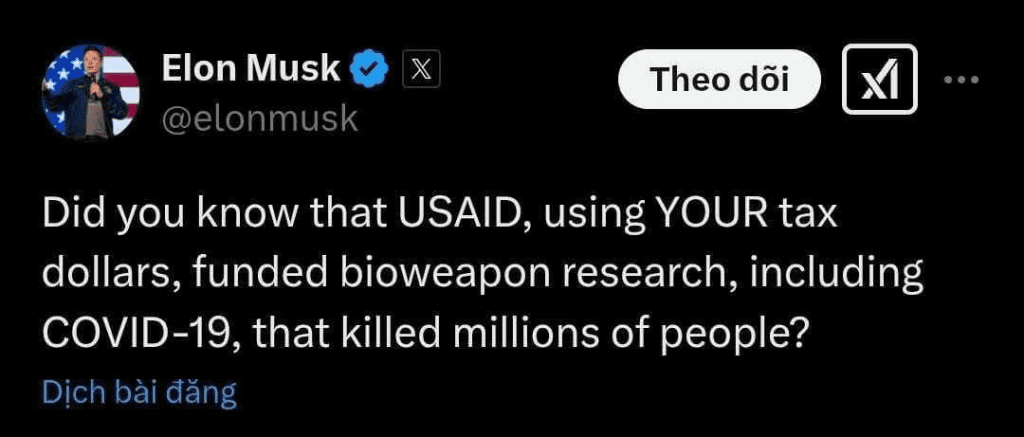Billionaire Elon Musk has recently alleged that the U.S. Agency for International Development (USAID) is involved in funding bioweapon research, including projects related to COVID-19. He referred to USAID as a “criminal organization” and questioned whether the public is aware that their tax dollars have been used to support such research, which he claims has resulted in millions of deaths.

These assertions have intensified scrutiny of USAID, leading to significant administrative actions. Staff members have been instructed to avoid the agency’s Washington, D.C., headquarters as the organization undergoes a reorganization under the State Department. This directive emphasizes remote work for most employees during the transition.
The reorganization is part of a broader initiative led by Musk’s Department of Government Efficiency (DOGE) to reduce federal spending. USAID’s $40 billion budget has been a focal point of this effort, with critiques highlighting the agency’s funding of controversial projects abroad. A recent freeze on foreign funding has already led to the cessation of several aid programs.

Secretary of State Marco Rubio has been appointed as the acting administrator of USAID to oversee its reorganization. He has criticized the agency for unresponsiveness and insubordination, suggesting that some functions may be merged into the State Department while others could be abolished.

These developments have sparked significant controversy. Democratic lawmakers have expressed strong opposition, arguing that the dismantling of USAID could undermine U.S. foreign policy and have severe humanitarian consequences. They have vowed to challenge the move legally, citing constitutional violations.
Critics also raise concerns about the potential impact on global aid programs, noting that USAID provides critical assistance worldwide, including support for countries affected by war, disease, and famine. The restructuring could reduce access to vaccines, food, and maternal care, with significant humanitarian consequences anticipated.
The situation continues to evolve, with ongoing debates about the future of USAID and the broader implications for U.S. foreign aid and international development efforts.


